 Trustees have the power to block pension transfers if they suspect a scam – they must use it! Now the Ombudsman has upheld a complaint against the Police trustee, there is hope for further justice against negligent pension trustees.
Trustees have the power to block pension transfers if they suspect a scam – they must use it! Now the Ombudsman has upheld a complaint against the Police trustee, there is hope for further justice against negligent pension trustees.
In the Royal London v Hughes case, Royal London suspected an attempted transfer was destined to go into a scam and blocked it. The member, Ms Hughes, complained to the Pensions Ombudsman – but he did not uphold her complaint. He said that Royal London was quite right to block the transfer. But Ms Hughes appealed the matter to the High Court and the judge overturned the Ombudsman’s determination.
The industry was, naturally, appalled. But this matter left many questions unanswered:
- Why was a singing teacher so desperate to transfer her £8,000 pension and have it invested in Cape Verde property? (Had she developed a passion for collapsible flats?)
- Where did she get the many thousands of pounds it must have cost her to have a barrister represent her in the High Court? (Considerably more than eight thousand quid I reckon).
- How come the mighty Fenner Moeran QC (for Royal London) got so soundly defeated by a public access barrister? (Was his sharp stick a bit blunt that day?)
- What happened to the several hundred people queuing up behind Ms Hughes to have their pensions invested in Cape Verde flats? (“Flat” being the operative word).
I could ask loads more pertinent and searching questions – like why did Ms Hughes’ public access barrister, Frances Ratcliffe of Radcliffe Chambers, think it was a good use of her considerable skills to defend an obvious pension scam? How drunk was the judge on the day? How many more people got scammed out of their pensions because of this abomination – and proof the law is not just an ass but a whole donkey farm?
Anyway, enough already. The damage was done in the Royal London v Hughes case. And now, hopefully, the door to justice has been opened in the Police Authority v Mr N case – as eloquently reported by Henry Tapper in his blog on 2.8.18. But there is a great deal more work to be done on this now: the scammers who organised and promoted the London Quantum scam need to be prosecuted and jailed; and the FCA-regulated firm – Gerard Associates – which gave the advice to the police officer (Mr N) needs to be sanctioned by the FCA. Gerard Associates – run by Stephen Ward’s associate Gary Barlow – also needs to refund the £5k they charged Mr N – and indeed all of the £220k they charged the 98 London Quantum victims.
Now is the time to bring to justice not only the pension scammers, but also the negligent ceding pension trustees who allowed the scammers to succeed – and facilitated financial crime.
At the time Mr N was scammed by Stephen Ward; Viva Costa International (the “introducers”); and FCA-regulated advisers Gerard Associates, the Pensions Regulator’s “Scorpion” campaign was in full flow. But it was unbelievably inept. It only really talked about liberation and ignored the many other kinds of fraud being perpetrated at the time – i.e. investment fraud.
The London Quantum pension scam came hard on the heels of the Capita Oak and Henley scams – which straddled the Scorpion watershed of February 2013. The transfer administration for Capita Oak was done by Stephen Ward of Premier Pension Solutions (Spain) and Premier Pension Transfers (Worsley, Manchester). Ward knew from first-hand experience how ceding trustees were starting – albeit agonisingly slowly and gradually – to resist transfer requests.
Here is evidence of the first tentative – and very inconsistent – moves to do some long-overdue diligence on pension transfer requests – as reported by Stephen Ward’s team of transfer administration scammers:
24.4.2013 – ReAssure Pensions – “The scheme now want the client’s application and new-dated screenshot emailed to Alan (Fowler – Ward’s pension lawyer chum) – on hold at Tom’s (Biggar – XXXX XXXX’s mate) request”.
11.4.2013 – Prudential – “Transfer canceled as per XXXX (XXXX XXXX’s wife)”
26.4.2013 – Zurich – “Unwilling to process – not sure why – need to cancel”
11.7.2013 – Zurich – “On hold as there may be an issue with Scorpion”
26.4.2013 – Friends Life – “Awaiting trust scheme rules – with Anthony (Salih – Ward’s mate) – need to cancel”
30.5.2013 – Aviva, NHS, Co-op, Friends Life – “Schemes are refusing to transfer”
11.6.2013 – Scottish Life – “Scheme contacting client – believed not transferring”
However, during this same period, there were plenty of transfers being made in defiance or ignorance of Scorpion. These included ceding schemes NHS (£43k), Scottish Widows (£25k), LGPS Newham (£47k), Aviva (£54k), Xerox £92k, Zurich (£21k), Prudential (£25k) and Standard Life (£53k).
But the most worrying was the Firefighters Pension Scheme: £69K after the following notes were made:
“Advised that the trustees committee are meeting to discuss cases and we are awaiting a call back next week. Transfer sent today 2.7.13 and paid on 16.8.13. Statement sent to XXXX and Tom (Biggar)”.
So the Firefighters were no better than the Police Authority in terms of ignoring the Scorpion warning.
And here is what the Scorpion warning was saying from 2013 onwards – and, indeed, was still saying in 2016 when the last couple of hundred Continental Wealth Management victims were in the process of being scammed:
 Predators Stalk Your Pension
Predators Stalk Your Pension
Companies are singling out savers like you and claiming that they can help you cash in your pension early. If you agree to this you could face a tax bill of more than half your pension savings.
Don’t let your pension become prey.
Pension loans or cash incentives are being used alongside misleading information to entice savers as the number of pension scams increases. This activity is known as ‘pension liberation fraud’ and it’s on the increase in the UK.
In rare cases – such as terminal illness – it is possible to access funds before age 55 from your current pension scheme. But for the majority, promises of early cash will be bogus and are likely to result in serious tax consequences.
What to watch out for?
- Being approached out of the blue, over the phone or via text message
- Pushy advisers or ‘introducers’ who offer upfront cash incentives
- Companies that offer a ‘loan’, ‘savings advance’ or cash back’ from your pension
- Not being informed about the potential tax consequences
Five steps to avoid becoming a victim
- Never give out financial or personal information to a cold caller
- Find out about the company’s background through information online. Any financial advisers should be registered with the FCA
- Ask for a statement showing how your pension will be paid at retirement and question who will look after your money until then
- Speak to an adviser that is not associated with the proposal you’ve received, for unbiased advice
- Never be rushed into agreeing to a pension transfer
If you think you may have been made an offer, contact Action Fraud.
But, the Scorpion warning failed tragically in so many different ways:
- The warning only talked about liberation. Many victims thought this warning didn’t apply to them as they had no intention of liberating their pension fund
- No information was given on how to find out about a company’s background – and how to establish whether it was regulated
- The warning talked about advisers being FCA regulated – but ignored the question of offshore advisers who obviously wouldn’t be FCA regulated
- The public was advised to contact Action Fraud – but did not disclose that Action Fraud would do absolutely nothing
 In 2015, we went to see the Pensions Regulator to talk about the failings of the Scorpion campaign – as well as the failings of the Regulator. Two Ark victims and I met the then Executive Director for Regulatory Policy – Tinky Winky. Our intention was to explain to him how the Scorpion campaign had failed and how it needed to be made more robust and comprehensive.
In 2015, we went to see the Pensions Regulator to talk about the failings of the Scorpion campaign – as well as the failings of the Regulator. Two Ark victims and I met the then Executive Director for Regulatory Policy – Tinky Winky. Our intention was to explain to him how the Scorpion campaign had failed and how it needed to be made more robust and comprehensive.
Tinky Winky, flanked by two lawyers and a paralegal, told us to “hop it” – and warned us that if we tried to interfere with the authority of the powers of the regulator, our arse would be grass and he’d be a lawnmower. A year later the Scorpion warning had still not been updated or improved and hundreds more victims lost their life savings.
The Pensions Ombudsman is, naturally, the hero of the hour in the Mr N v Police Authority case. And hopefully, he will find for the rest of the victims if they all now bring complaints against their negligent ceding trustees in the London Quantum case. But we must remember that, contrary to what the Ombudsman’s service has said for the past few years, the industry did know about pension scams long before the Scorpion Campaign in February 2013.
In fact, a clear warning had been given in 2010. The Pensions Regulator had been fully aware that since 1999 pension scams were on the increase, and yet did not make it clear to ceding pension trustees what their statutory obligations were in respect of transferring victims into scams. On 13.7.2010, tPR Chair David Norgrove stated that: “Any administrator who simply ticks a box and allows the transfer, post July 2010, is failing in their duty as a trustee and as such are liable to compensate the beneficiary.”
But pension trustees claim they never read that message (let alone heeded it) and that it was neither publicised nor distributed. Further, in the same year Tony King, the Pensions Ombudsman, reported that he had “found that pension trustees failed in carrying out serious fiduciary responsibilities to others in circumstances in which the law specifically states that they should not be protected from liability.” And still tPR did nothing. And the Pension Schemes Act 1993 was not amended to reflect the urgent need to protect the public.
The Pensions Regulator’s predecessor – OPRA (Occupational Pensions Regulatory Authority) had warned about the dangers of pension scams years before 2013 – as had HMRC. The last thing I want to do is criticise the Ombudsman – as this must be his hour of glory and we must all be hugely grateful to him. Especially Mr N and his fellow London Quantum victims. But we must remember that the industry in general, and pension trustees in particular, should have been alert to pension scams long before Scorpion.
Now is the time to bring to justice not only the pension scammers, but also the negligent ceding pension trustees who allowed the scammers to succeed – and facilitated financial crime.


 What a disgrace that Gillett can announce that he is “proud” of their performance over the last 20 years – proud of the misery and stress caused to the victims of the
What a disgrace that Gillett can announce that he is “proud” of their performance over the last 20 years – proud of the misery and stress caused to the victims of the 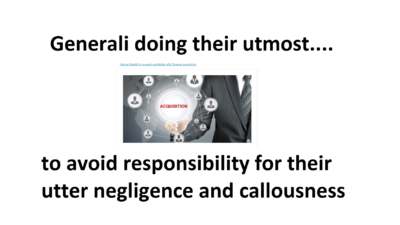 With the responsibility of Generali being passed over to LCCG, here at Pension Life, we wonder if LCCG will be taking responsibility for Generali´s past victims as well. Will LCCG apply their corporate risk solutions to those who have already been put at risk? Generali on their own certainly didn´t apply a high standard of risk solutions when they placed CWM victims´ funds into high-risk, toxic, professional-investor-only structured notes.
With the responsibility of Generali being passed over to LCCG, here at Pension Life, we wonder if LCCG will be taking responsibility for Generali´s past victims as well. Will LCCG apply their corporate risk solutions to those who have already been put at risk? Generali on their own certainly didn´t apply a high standard of risk solutions when they placed CWM victims´ funds into high-risk, toxic, professional-investor-only structured notes.


 Non payment of a TV licence (when a television set is used within a house) is a criminal offence, and non-payment results in a police warrant being issued. Furthermore, men with vans are employed to visit all households on their database that do not pay their TV licence and basically harass them into proving they do not have a TV. It is just assumed that anyone without a TV licence is guilty, and so a campaign of harassment begins by letters and visits to intimidate people into buying a licence.
Non payment of a TV licence (when a television set is used within a house) is a criminal offence, and non-payment results in a police warrant being issued. Furthermore, men with vans are employed to visit all households on their database that do not pay their TV licence and basically harass them into proving they do not have a TV. It is just assumed that anyone without a TV licence is guilty, and so a campaign of harassment begins by letters and visits to intimidate people into buying a licence.
 Among the flood of apathy, laziness and callousness by ceding pension trustees since at least 2010, we now have a Pensions Ombudsman’s determination which will hopefully result in more trustees being brought to account – and more victims getting justice.
Among the flood of apathy, laziness and callousness by ceding pension trustees since at least 2010, we now have a Pensions Ombudsman’s determination which will hopefully result in more trustees being brought to account – and more victims getting justice.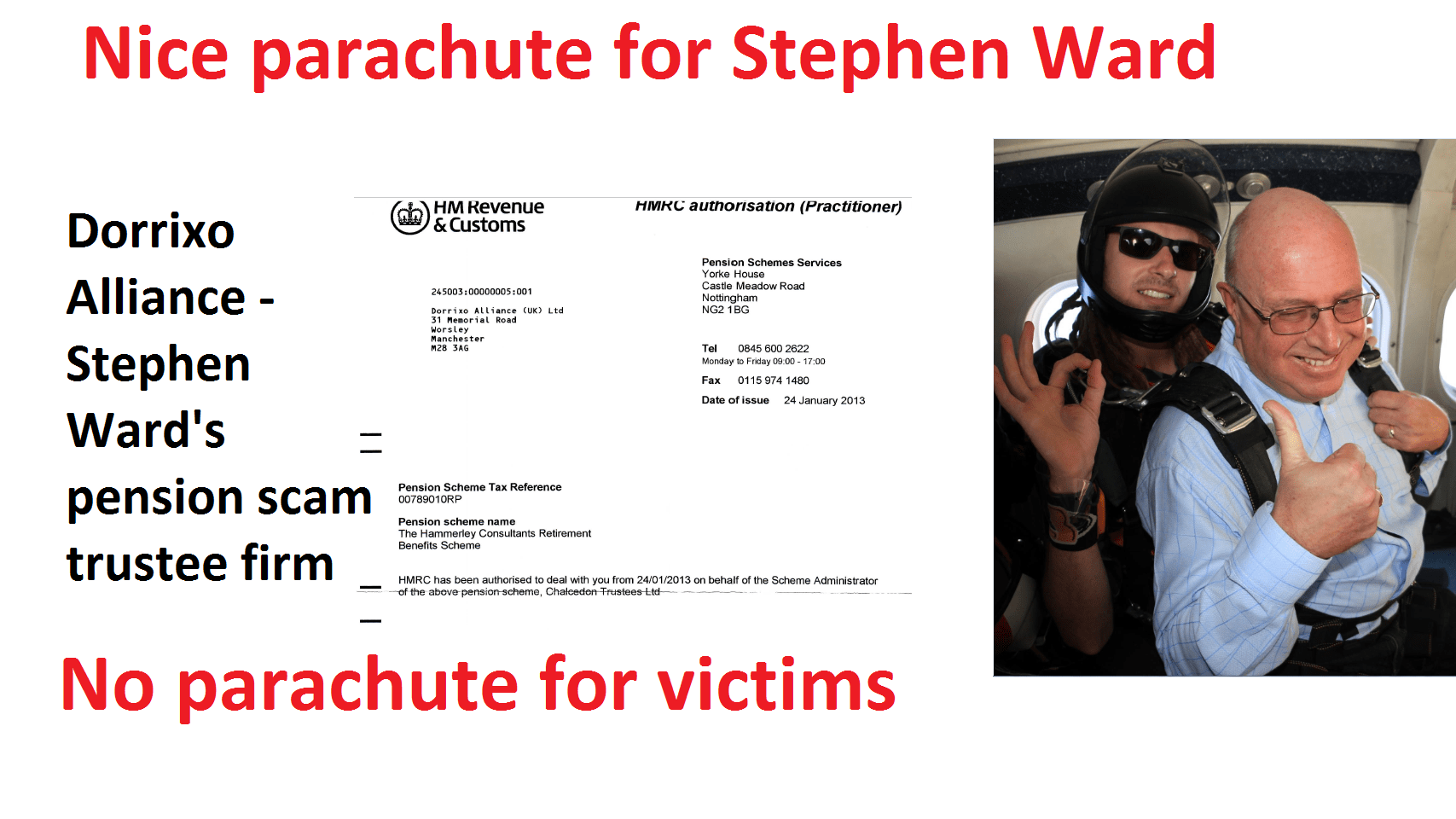 It is worth noting that, in May of 2014, I went to London and handed HMRC evidence of Stephen Ward’s various pension scams – including his pension administration and trustee firm: Dorrixo Alliance (the trustee for
It is worth noting that, in May of 2014, I went to London and handed HMRC evidence of Stephen Ward’s various pension scams – including his pension administration and trustee firm: Dorrixo Alliance (the trustee for 

 In 2010/11, dozens of trustees handed over £ millions to the Ark scam. The worst offender in the personal pension sector was Standard Life; the worst offender in the DB sector was Royal Mail – by a royal mile. We were denied permission to bring complaints to the Pensions Ombudsman as the Ark transfers were effected prior to February 2013 – the date the Pensions Regulator’s “Scorpion” warning was published.
In 2010/11, dozens of trustees handed over £ millions to the Ark scam. The worst offender in the personal pension sector was Standard Life; the worst offender in the DB sector was Royal Mail – by a royal mile. We were denied permission to bring complaints to the Pensions Ombudsman as the Ark transfers were effected prior to February 2013 – the date the Pensions Regulator’s “Scorpion” warning was published.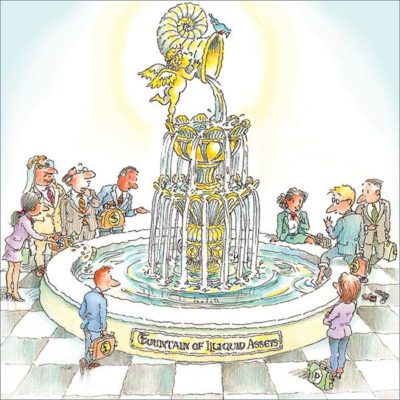 (Note: Gerard have never refunded the £5,000 to Mr N – and, presumably, have held on to the fees charged to the other 97 victims). This is entirely typical of how pension scams work. Mr N was in fact invested in high-risk, toxic, illiquid, speculative funds which were totally unsuitable for a pension fund. The only parties who benefited from this transaction were the scammers themselves, as they would have received high investment introduction commissions. The investments included:
(Note: Gerard have never refunded the £5,000 to Mr N – and, presumably, have held on to the fees charged to the other 97 victims). This is entirely typical of how pension scams work. Mr N was in fact invested in high-risk, toxic, illiquid, speculative funds which were totally unsuitable for a pension fund. The only parties who benefited from this transaction were the scammers themselves, as they would have received high investment introduction commissions. The investments included:
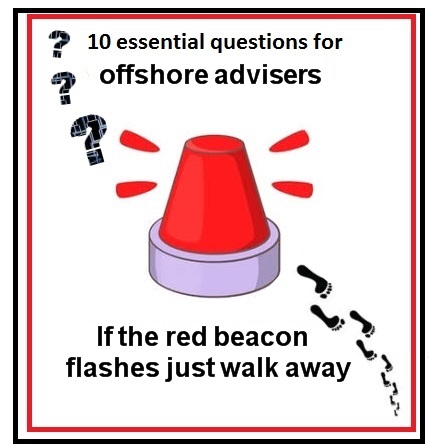
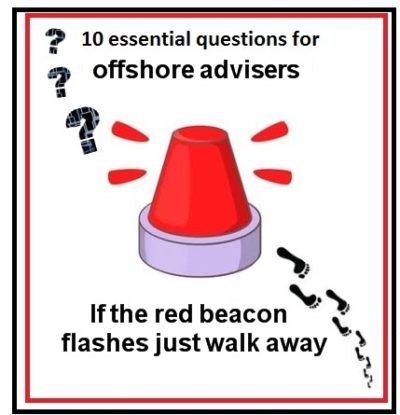 Pension Life is working towards making offshore financial advisers more transparent. We have created a list of 10 essential questions for offshore advisers and their preferred answers. For too long precious pension funds been left in the hands of unqualified, unregistered advisers and unregulated financial advisory firms.
Pension Life is working towards making offshore financial advisers more transparent. We have created a list of 10 essential questions for offshore advisers and their preferred answers. For too long precious pension funds been left in the hands of unqualified, unregistered advisers and unregulated financial advisory firms.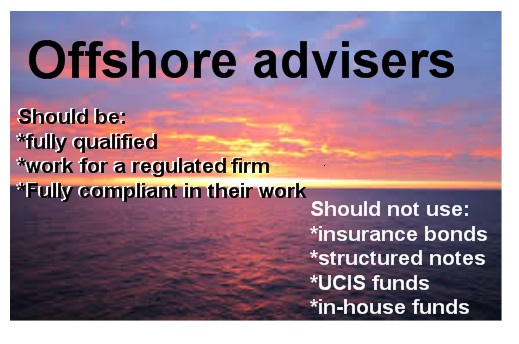
 If your offshore adviser refuses to answer the questions or skims around an answer – just walk away. Anyone offering pension advice should adhere to certain criteria and he must be ready and willing to provide you with all the information you ask for. He should be fully transparent about all the details involved with your pension transfer.
If your offshore adviser refuses to answer the questions or skims around an answer – just walk away. Anyone offering pension advice should adhere to certain criteria and he must be ready and willing to provide you with all the information you ask for. He should be fully transparent about all the details involved with your pension transfer.




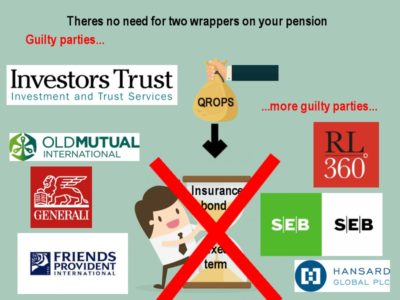




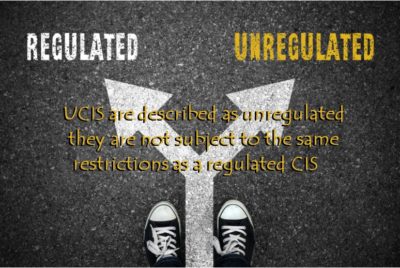


 Pension Life is based in Spain, and Angie works with clients all over the world. Pension and investment scammers have no boundaries or borders and will weave their evil mischief wherever they can find British expats.
Pension Life is based in Spain, and Angie works with clients all over the world. Pension and investment scammers have no boundaries or borders and will weave their evil mischief wherever they can find British expats. Angie stands up for the masses, where their single complaints are lost in a pile of excuses by the firms responsible for the destruction of their funds. She meets and speaks to as many victims as she can. Each victim has his or her own tragedy – often involving serious health issues and terrible financial hardship as a result of being scammed out of their life savings.
Angie stands up for the masses, where their single complaints are lost in a pile of excuses by the firms responsible for the destruction of their funds. She meets and speaks to as many victims as she can. Each victim has his or her own tragedy – often involving serious health issues and terrible financial hardship as a result of being scammed out of their life savings. here is a reason why I write my blogs. Firstly to warn the public and expose the things that go wrong in the financial services industry – to try to help new people avoid falling victim to scams, negligence and mis-selling; secondly to bring firms to the table to negotiate a solution to a problem where a client has suffered losses in their pension or investment portfolio. Few people have funds to instruct lawyers to sue firms to force them to pay redress for clients’ losses, so it is much better and cheaper to get the firm to volunteer to do so amicably and in a non-contentious manner.
here is a reason why I write my blogs. Firstly to warn the public and expose the things that go wrong in the financial services industry – to try to help new people avoid falling victim to scams, negligence and mis-selling; secondly to bring firms to the table to negotiate a solution to a problem where a client has suffered losses in their pension or investment portfolio. Few people have funds to instruct lawyers to sue firms to force them to pay redress for clients’ losses, so it is much better and cheaper to get the firm to volunteer to do so amicably and in a non-contentious manner. I have in the past had very public spats on social media with deVere AND its CEO, Nigel Green, as well as the others who I have been accused of not writing about. And, if I need to have spats again in the future, I will not hesitate to do so. Like most firms, deVere has indeed made some serious mistakes in the past. However, I do not have any live, unresolved client complaints against the firm.
I have in the past had very public spats on social media with deVere AND its CEO, Nigel Green, as well as the others who I have been accused of not writing about. And, if I need to have spats again in the future, I will not hesitate to do so. Like most firms, deVere has indeed made some serious mistakes in the past. However, I do not have any live, unresolved client complaints against the firm. 
 Winky accused me of bombarding him with emails (about the Capita Oak scam). I counted them: 16 over an 8-week period. My calculator said that was approximately two per week.
Winky accused me of bombarding him with emails (about the Capita Oak scam). I counted them: 16 over an 8-week period. My calculator said that was approximately two per week.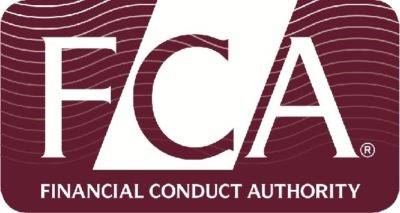

 I had to spell out some words several times as the man’s English seemed to get worse as the agonisingly painful conversation dragged on and on. When I had finished, exhausted and wondering if this was all a bad dream, the man said “OK, hand your documents into the post room”. We duly dropped the bulging envelope into the tiny little room just outside the entrance to the FCA building. I assume it was all shredded as we never even got an acknowledgement.
I had to spell out some words several times as the man’s English seemed to get worse as the agonisingly painful conversation dragged on and on. When I had finished, exhausted and wondering if this was all a bad dream, the man said “OK, hand your documents into the post room”. We duly dropped the bulging envelope into the tiny little room just outside the entrance to the FCA building. I assume it was all shredded as we never even got an acknowledgement.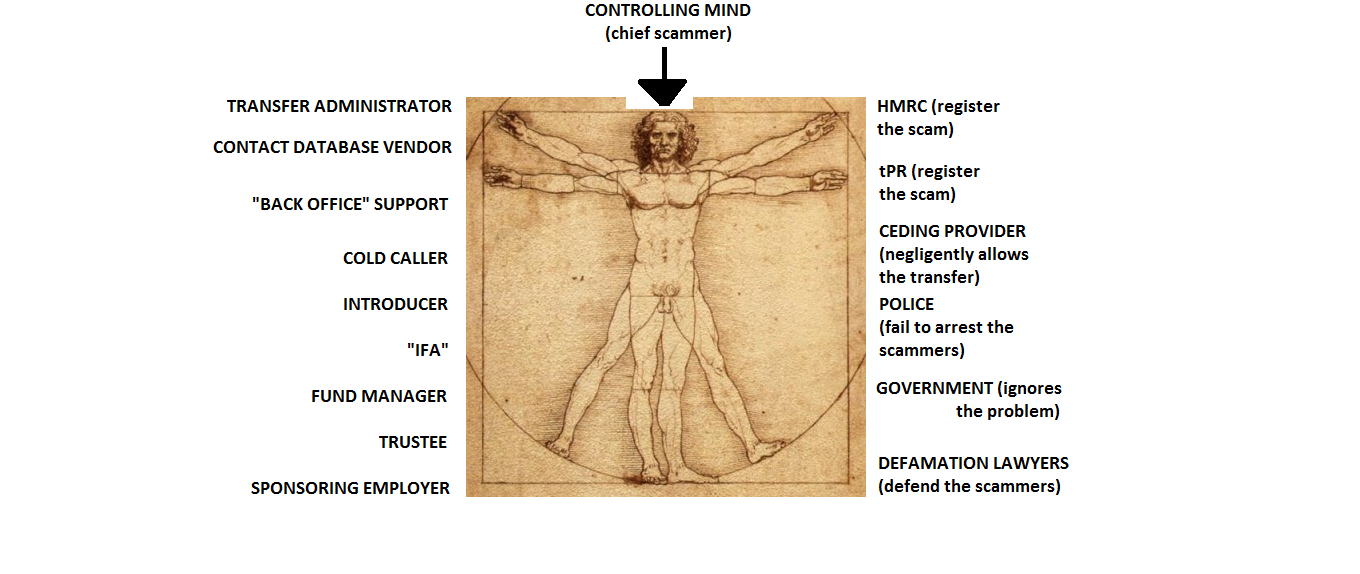
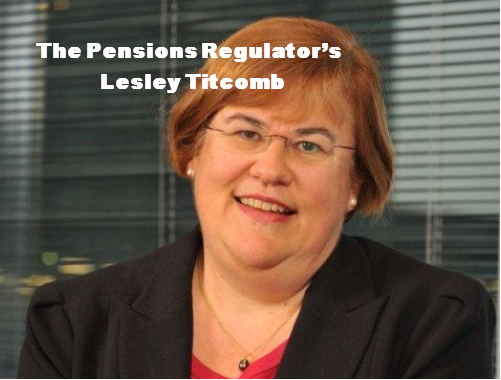



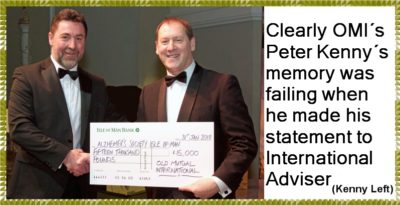 Kenny told International Adviser:
Kenny told International Adviser: Here at Pension Life, we do hope that even trainees at OMI are aware that pension fund members are retail investors and should be placed into low to medium risk, liquid investments. However, it seems that these details obviously don´t feature in OMI´s training manual.
Here at Pension Life, we do hope that even trainees at OMI are aware that pension fund members are retail investors and should be placed into low to medium risk, liquid investments. However, it seems that these details obviously don´t feature in OMI´s training manual. Regrettably for the investors who were victims of the CWM scammers and OMI, they most definitely did not possess the depth of knowledge required to fully understand the risks. They put their faith in the smartly- dressed scammers. With promises of high returns, the high risk of the investments and high fees to be charged were left unmentioned. OMI were supposed to protect the victims’ interests but failed dismally to lift a finger to help arrest the downward spiral of the funds.
Regrettably for the investors who were victims of the CWM scammers and OMI, they most definitely did not possess the depth of knowledge required to fully understand the risks. They put their faith in the smartly- dressed scammers. With promises of high returns, the high risk of the investments and high fees to be charged were left unmentioned. OMI were supposed to protect the victims’ interests but failed dismally to lift a finger to help arrest the downward spiral of the funds. 
 Two pension liberation scammers have been sentenced to time behind bars AND a recovery of funds after creating an elaborate pension liberation scam, involving around 23 victims and nearly 1 million pounds of pension funds. Successful Pensions sure was unsuccessful for all involved.
Two pension liberation scammers have been sentenced to time behind bars AND a recovery of funds after creating an elaborate pension liberation scam, involving around 23 victims and nearly 1 million pounds of pension funds. Successful Pensions sure was unsuccessful for all involved.




